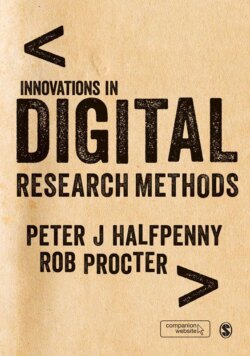Читать книгу Innovations in Digital Research Methods - Группа авторов - Страница 27
На сайте Литреса книга снята с продажи.
Chapter 12: Ethical Praxis in Digital Social Research
ОглавлениеCurrent approaches to ethics no longer seem adequate for twenty-first century social research. We have already noted the concern registered by the authors of preceding chapters about the privacy and confidentiality threats raised by the proliferation of social data. There is an emerging consensus that a new ethical framework for the conduct of social research is necessary in order to protect citizens from harm but, as yet, there is little agreement on what changes it should embody, and how it should be promulgated and enforced.
In this chapter, Jirotka and Anderson examine the ethical issues raised by e-Research methods and what steps the social research community might take to address them. They use three case studies to illustrate the issues. The first describes a flagship UK e-Science project eDiaMoND and the process of gaining ethical approval for its work. The second concerns a recent controversy regarding social science researchers’ use of Facebook data called the ‘Harvard Meltdown’. The final case study is about developing prototype assistive technology for vulnerable people. Jirotka and Anderson draw several conclusions from these studies: managing ethics in large scale, multi-disciplinary research projects is particularly difficult and some of the founding principles of research ethics, such as informed consent, can be burdensome; protecting the identity of sources using conventional techniques for anonymization is becoming progressively less reliable as more and more information about subjects and settings becomes openly available via the Web (identification is always possible given enough correlated data); consenting to take part in research must be done in a principled way and, having consented, participants must have the power in practice – and not just in principle – to withdraw it; and finally, where a project involves interventions in people’s lives, researchers must consider what may happen once the project finishes.
They conclude with a discussion of the ethics of big social data. They underline the importance of the well-rehearsed arguments about threats to privacy and confidentiality. They ask what rules should apply to the use of social media in research: does publishing thoughts and opinions in public render informed consent irrelevant? However, their key insight goes further: it questions whether the lure of big social data is persuading researchers to relax their professional judgment about what conclusions are warrantable from the data. Jirotka and Anderson’s fundamental argument is that we need to bring ethical considerations into the heart of how we conduct research, from the point where decisions are being made about research goals, through to the collection and analysis of the data and the making sense of the findings.
